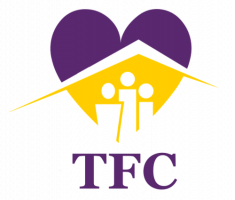Was I Going to Die?
Sunday, December 14, 2025
⇦ Previous
⇦ Previous
Peace I leave with you; my peace I give you. I do not give to you as the world gives. Do not let your hearts be troubled and do not be afraid. John 14:27, NIV.
I was scared. Was I going to die? Would my boys be motherless? And would my husband love me less if I had to have a mastectomy?
I had just received news of a mass in my left breast. It was our twenty-first wedding anniversary. A hushed reserve hung over us as we ate our special dinner together, and later, as we sat in our hotel room, we talked about what the future might hold.
By Friday, without our anniversary celebration to think about, the depressing “what if” feelings crept in. I prayed constantly, and forced myself to sing and be happy. But the next day in church, thoughts of possible death and despair overwhelmed me, and I broke down. The statistics kept ringing in my ears. After lung cancer, breast cancer is the leading cancer killer of U.S. women.
On Sunday we both went to see the surgeon, and we were encouraged. He felt that it was possibly a fibrocystic nodule. Saying that he wanted to see me in two months, he put me on a strict diet and increased exercise. According to research findings, an extra 15 pounds increases the risk of breast cancer by 37 percent, and with an extra 20 pounds the risk rises to 52 percent. That means that a 10-pound difference may be significant when it comes to lowering your cancer risk. And according to Dr. Noreen Azid, of the Lee Moffit Cancer Center in Tampa, Florida, of all the decades of life you should lose that extra weight, it’s the third one.
The weeks passed, and I had lost 12 pounds. Allan went with me to see the doctor. Following an ultrasound and mammogram, the doctor reported: “There is no mass.” After comparing the reports and seeing the mammogram, we sighed in relief and sent a prayer heavenward in thanksgiving.
From that experience we learned how precious is our health, and how its threatened loss can suddenly and markedly rearrange our priorities. Continually I resolve to appreciate each day the Lord gives and to be glad and rejoice in it.
What should you do today, in case there is no tomorrow?
I was scared. Was I going to die? Would my boys be motherless? And would my husband love me less if I had to have a mastectomy?
I had just received news of a mass in my left breast. It was our twenty-first wedding anniversary. A hushed reserve hung over us as we ate our special dinner together, and later, as we sat in our hotel room, we talked about what the future might hold.
By Friday, without our anniversary celebration to think about, the depressing “what if” feelings crept in. I prayed constantly, and forced myself to sing and be happy. But the next day in church, thoughts of possible death and despair overwhelmed me, and I broke down. The statistics kept ringing in my ears. After lung cancer, breast cancer is the leading cancer killer of U.S. women.
On Sunday we both went to see the surgeon, and we were encouraged. He felt that it was possibly a fibrocystic nodule. Saying that he wanted to see me in two months, he put me on a strict diet and increased exercise. According to research findings, an extra 15 pounds increases the risk of breast cancer by 37 percent, and with an extra 20 pounds the risk rises to 52 percent. That means that a 10-pound difference may be significant when it comes to lowering your cancer risk. And according to Dr. Noreen Azid, of the Lee Moffit Cancer Center in Tampa, Florida, of all the decades of life you should lose that extra weight, it’s the third one.
The weeks passed, and I had lost 12 pounds. Allan went with me to see the doctor. Following an ultrasound and mammogram, the doctor reported: “There is no mass.” After comparing the reports and seeing the mammogram, we sighed in relief and sent a prayer heavenward in thanksgiving.
From that experience we learned how precious is our health, and how its threatened loss can suddenly and markedly rearrange our priorities. Continually I resolve to appreciate each day the Lord gives and to be glad and rejoice in it.
What should you do today, in case there is no tomorrow?
Used by permission of Health Ministries, North American Division of Seventh-day Adventists.
⇦ Previous

